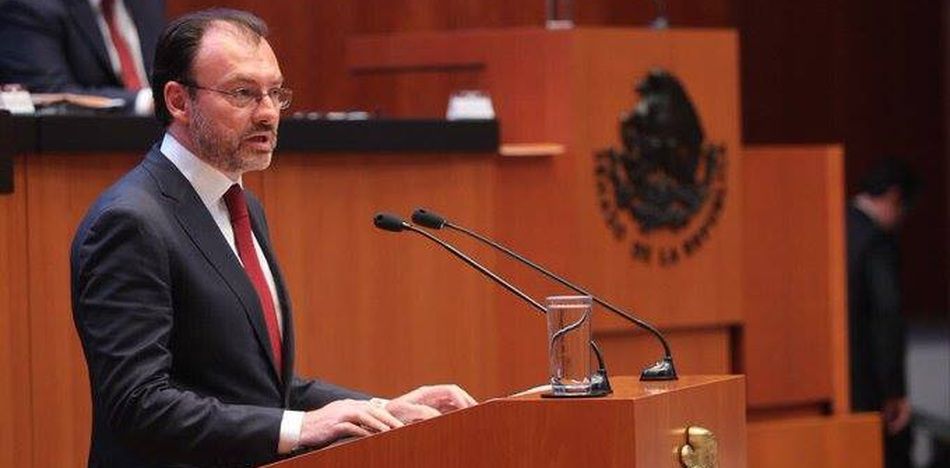
EspañolMexico is working on a Plan B should discussions to renegotiate the North American Free Trade Agreement fall through with the United States and Canada. The US continues to push its “America First” policy that stands firm on ensuring US jobs don’t suffer from the agreement, while Mexico works to ensure any compromises made to satisfy that goal don’t compromise its own interests.
A “Plan B,” according to Secretary of Foreign Affairs Luis Videgaray, involves a macroeconomic response that diversifies commercial markets while protecting foreign investment already established in the country. Though Mexico’s Ministry of Finance and Central Bank are working together on the backup plan, President Enrique Peña Nieto’s adminsitration said it is still hopeful an agreement can be made soon.
“We have to be prepared for all possibilities, and one scenario is for the United States to leave the treaty, which, as we have said, would not be the end of the world,” Nieto said. “The Mexican economy is much bigger than NAFTA.”
Officials in Mexico have reiterated on several occasions that dissolving NAFTA would not be “the end of the world;” however, international organizations, such as the International Monetary Fund (IMF), have warned that the economic growth of the country is at risk due to the uncertainty of the future of the treaty.
If the United States imposes tariffs on imports, the IMF said, it would affect the country’s growth and slow down capital flow. It suggested Mexico consider “temporary interventions of foreign currency and the provision of liquidity that could help soften the extreme volatility” of its currency.
- Read More: Mexico Ranks First in Latin America in World Bank’s Doing Business Index
- Read More: Mexico’s Congressmen Pass Reform to Foster Drone Industry
IMF made the suggestions in its most recent report following a visit to the country. The report also stressed that “prolonged uncertainty” would affect the Mexican economy the most. “The delay in negotiations may prolong the uncertainty about the future of Mexico’s economic relations with the United States,” it said.
However, the 76-page report also said that the Mexican economy has reacted resiliently to the current complex international environment, as its production has increased at a moderate pace and inflation has slightly exceeded projections made by the Central Bank of Mexico.
Sources: El Economista, El Economista
 Versión Español
Versión Español












